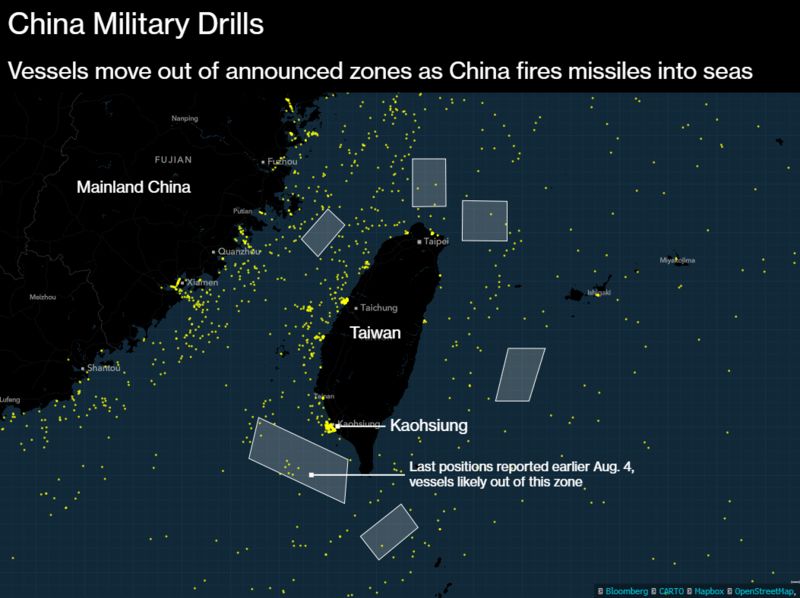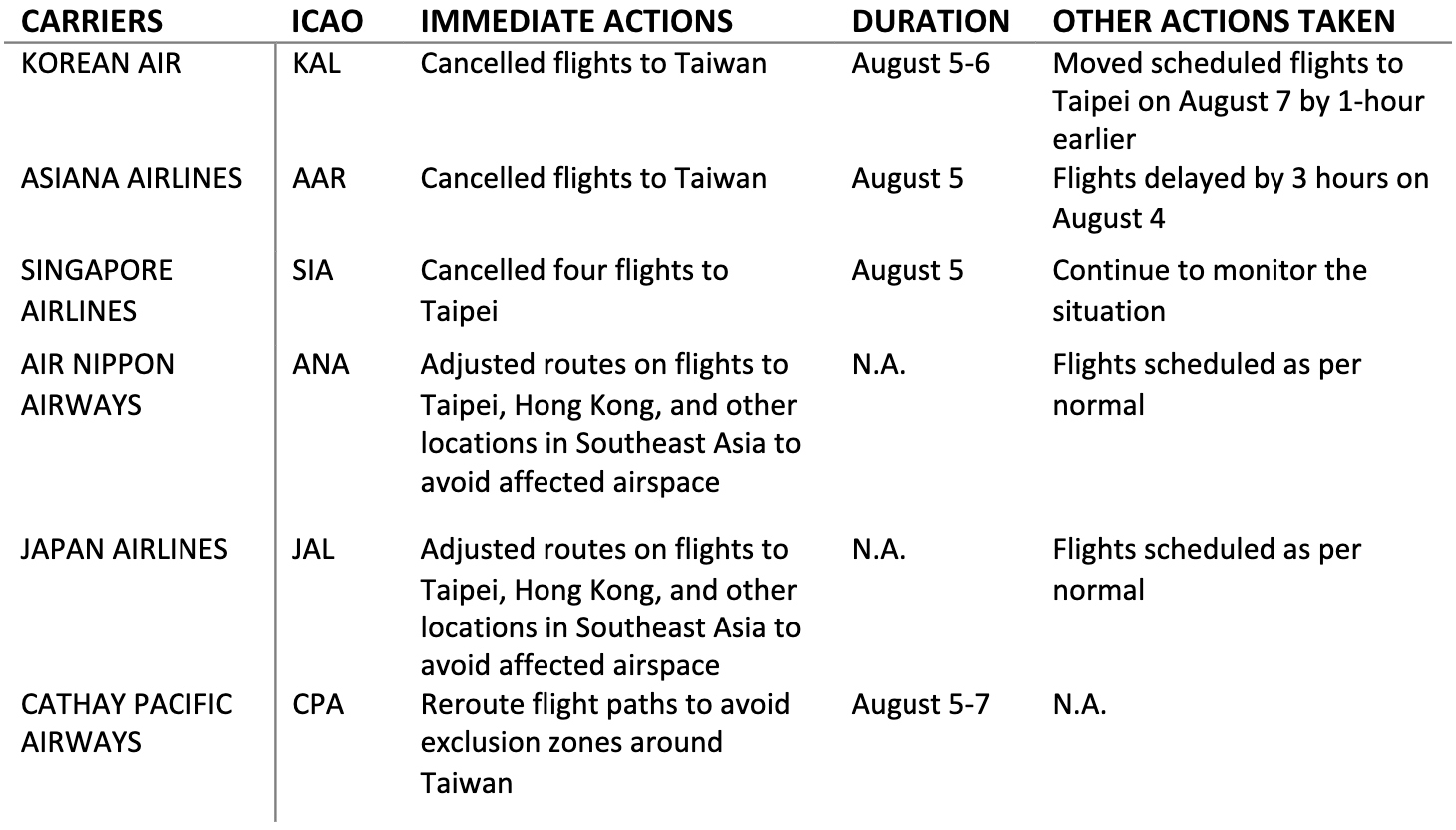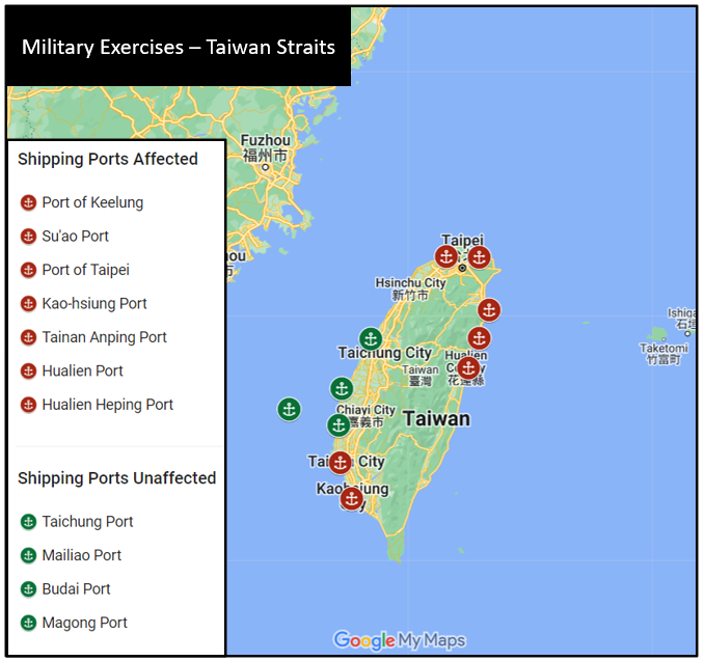China has implemented trade restrictions with Taiwan, raising concerns about impacts to global supply chains. China banned the export of natural sand, including lake, river, and sea sand made of silica and quartz, critical raw materials needed to produce wafers, the substrate of semiconductors, and building and construction products including cement, ceramics, and moulding equipment. As China’s exports of quartz and silica-based natural sand account for 23% of Taiwan’s supply, concerns are growing that trade restrictions could disrupt the global semiconductor or construction building materials industries.

Figure 1: Map of China’s military drill areas. Source: Bloomberg.
As part of the same trade restrictions, China banned the import of several commodities from Taiwan, including food products including citrus fruit, chilled white-striped hairtail, and frozen horse mackerel.
Military drills disrupt flight routes and shipping schedules, leading to widespread diversions
China’s recent military drills have disrupted at least 18 international flight routes that would normally pass through the exclusion zone. Airlines have been advised to plan alternate routes and carry a greater fuel load than normal in case of any unexpected diversions mid-flight. On August 4 alone, 74 flights in and out of Taiwan were rerouted due to the drills. Others were outright canceled, including over 40 flights operated by South Korea’s Korean Air Lines and Asiana Airlines and some 400 scheduled flights across Fujian, the Chinese province closest to Taiwan.

Table 1: Known flight disruptions as of August 5; Source: Everstream Analytics.
On August 3, Taiwan’s Maritime & Port Bureau and its Ministry of Transportation and Communication announced that seven of its major domestic ports would face disruptions until at least August 7.

Figure 2: Known shipping port disruptions as of August 3; Source: Everstream Analytics.
Outlook and recommendations
The Taiwan Strait is one of the world’s busiest shipping routes, with at least half of all container ships passing through the waterways in the first seven months of 2022. It is a critical route in connecting Taiwan’s semiconductor and electronics manufacturing to global markets. Amid existing semiconductor supply shortages brought on by the COVID-19 pandemic, and exacerbated by unrelated global shipping challenges, heightened disruptions to the global availability of such products are likely.
The Taiwan Strait is also a passageway for liquified natural gas (LNG), already widely disrupted by Russia’s invasion of Ukraine and subsequent global sanctions on Russia. Should the situation escalate into formal conflict, global shortages in fuel and semiconductors will reach an unprecedented scale.
Shipment and scheduled flight rerouting will likely impact the availability and cost of goods originating in the region, which is already threatened by disruptions from the ongoing typhoon season.
Get our report, Competing for Chips, for global semiconductor analysis and outlook.